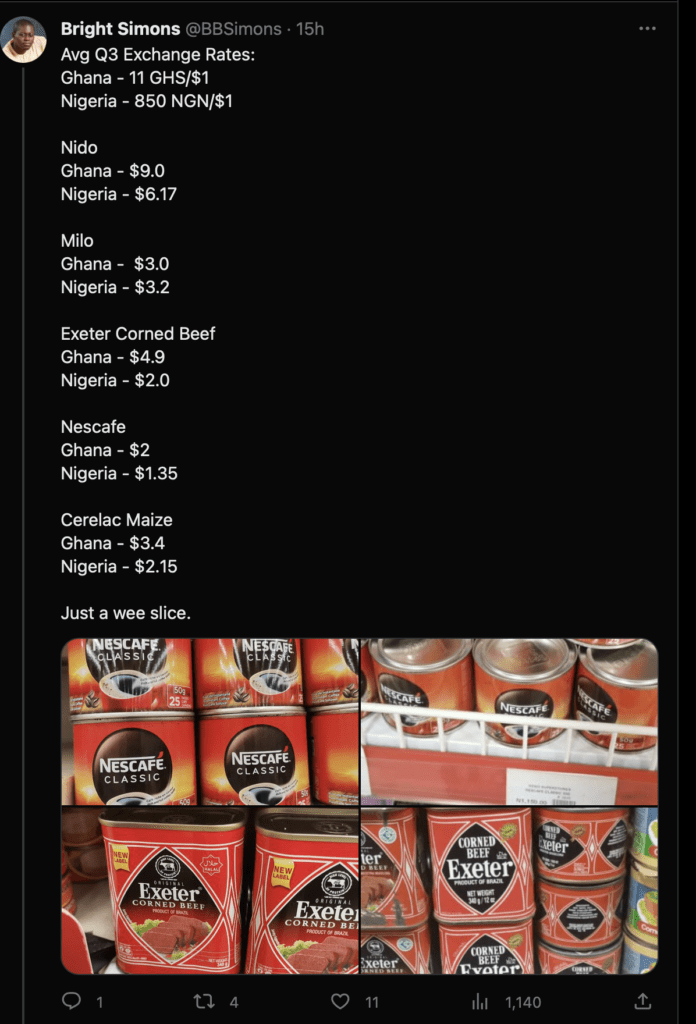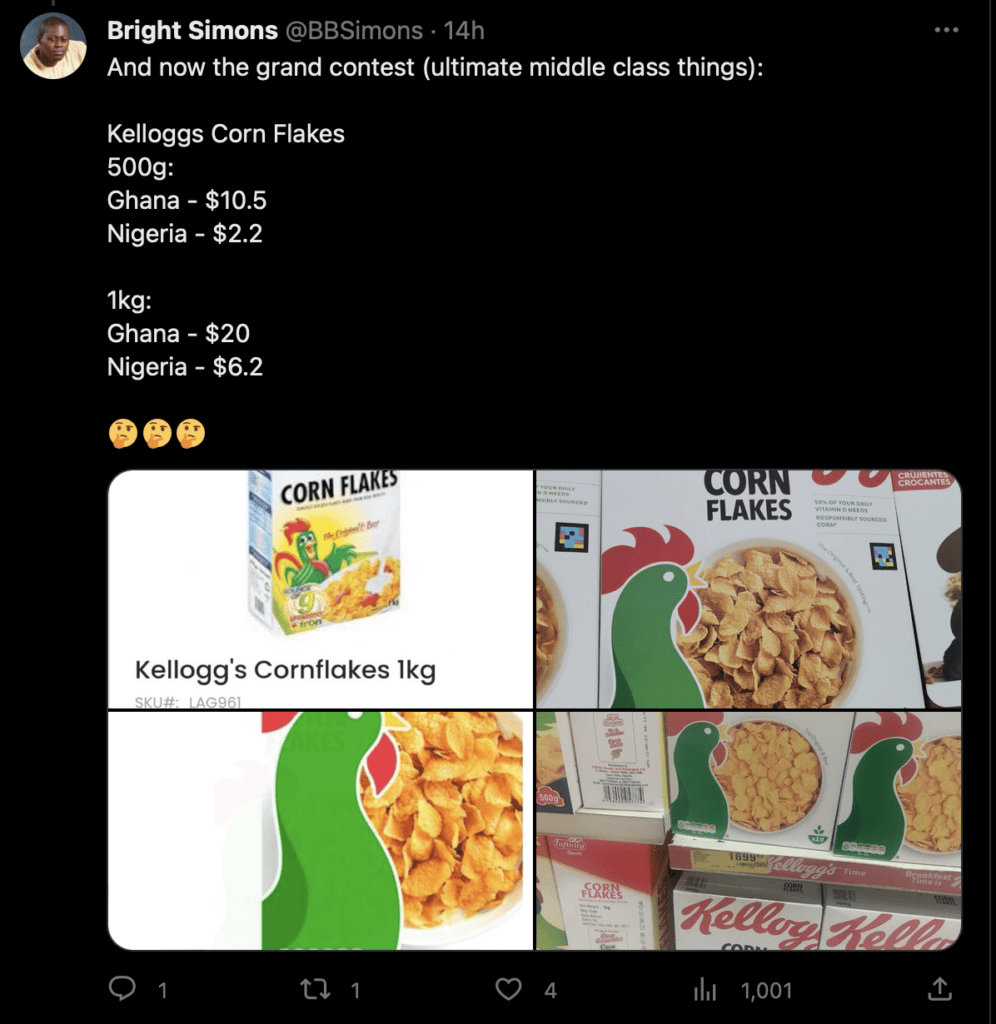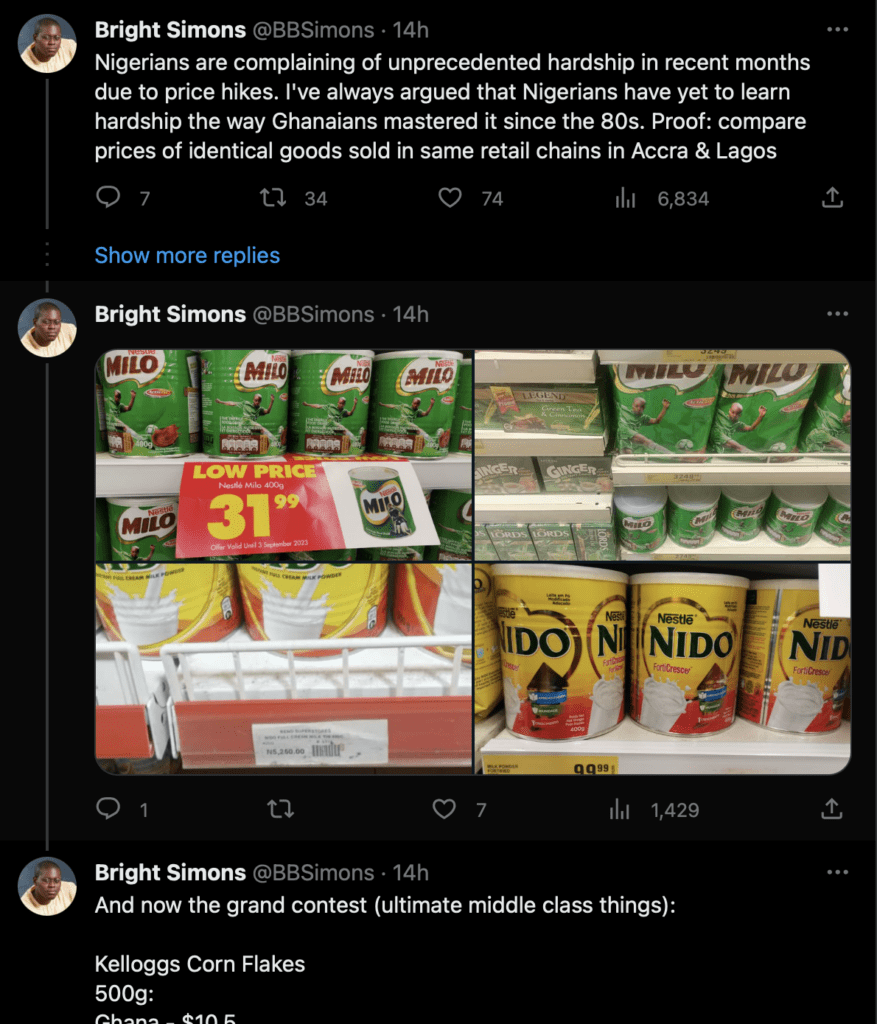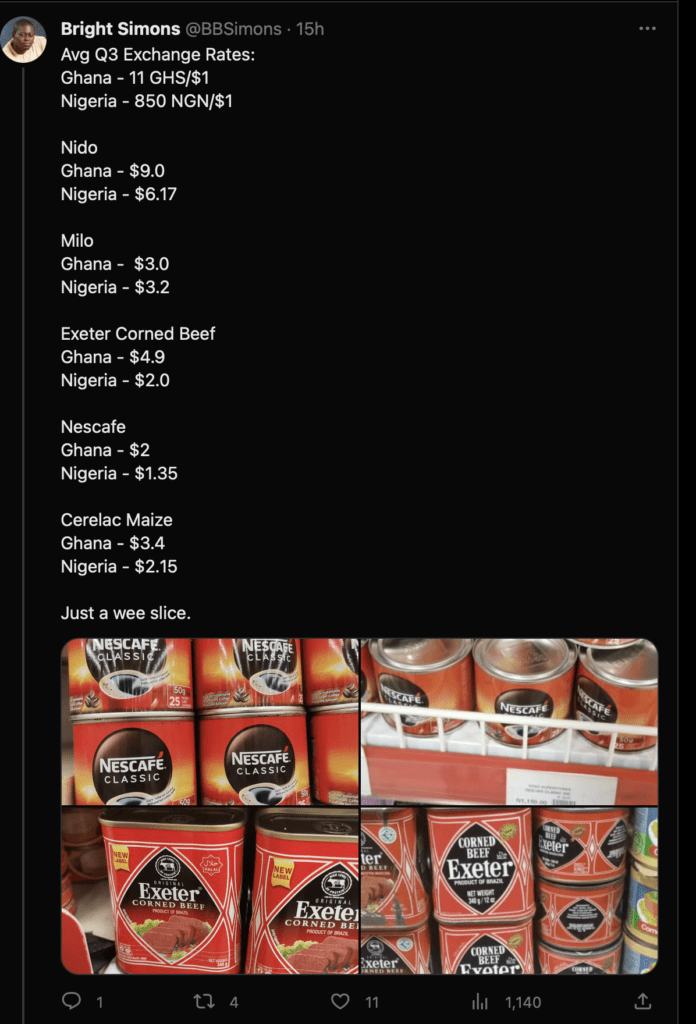Ghanaian social innovator and entrepreneur, Bright Simons, has sparked a debate on social media after he compared the prices of some basic goods in Ghana and Nigeria.
Simons, who is the president of mPedigree Network, a platform that fights counterfeit products, tweeted that Nigerians were complaining of unprecedented hardship in recent months due to price hikes.
He added that he had always argued that Nigerians had yet to learn hardship the way Ghanaians mastered it since the 80s.
He then provided a list of some identical goods sold in the same retail chains in Accra and Lagos, and showed how much more expensive they were in Ghana than in Nigeria.
According to Simons, the average exchange rates for the third quarter of 2023 is 11 Ghanaian cedis per US dollar and 850 Nigerian naira per US dollar.

He then gave examples of some products such as Nido milk powder, Milo chocolate drink, Exeter corned beef, Nescafe coffee, Cerelac maize cereal, and Kelloggs corn flakes.
He claimed that these products were significantly cheaper in Nigeria than in Ghana, with some having more than four times the price difference.

He concluded his tweet by saying “Just a wee slice” and “And now the grand contest (ultimate middle class things)”.
Simons’ tweet generated mixed reactions from his followers, with some agreeing with his point and others challenging his data and methodology.

Some Nigerians argued that Simons was not taking into account other factors such as insecurity, income levels, purchasing power parity, inflation rates, taxes, subsidies, and quality standards.

They also pointed out that Nigeria had a larger population and market size than Ghana, which could affect the economies of scale and supply and demand.
They also asked him to consider other aspects of living standards such as health care, education, security, infrastructure, and governance.
Simons defended his tweet by saying that he was not trying to make a value judgment or a political statement, but rather to highlight a factual observation.
He said that he was interested in understanding why there was such a huge price gap between the two countries, and what implications it had for their economic development and regional integration.
He also said that he was open to constructive feedback and criticism, and invited his followers to share their views and insights on the issue.
Source: The Independent Ghana| P.M.A Roberts
